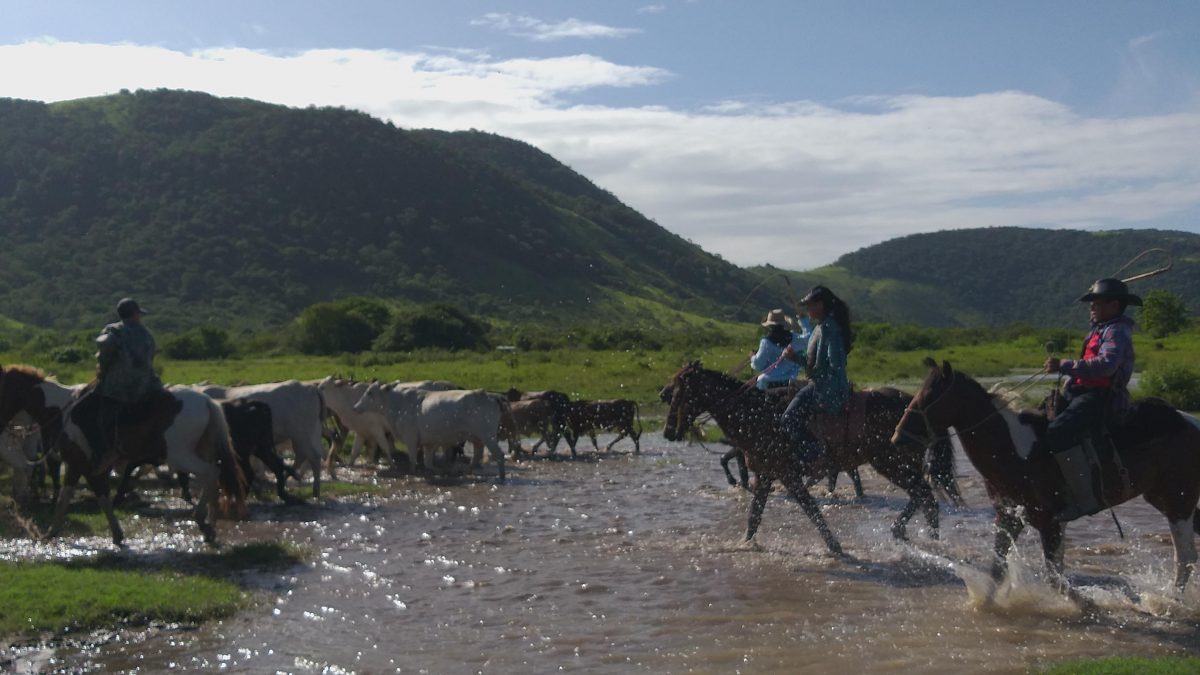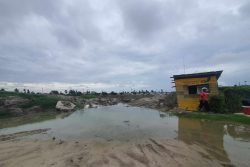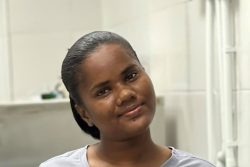Observers of the record of successive political administrations in the matter of sustained commitment to the development of the country’s hinterland communities, have left careful observers with ‘little to write home about.’ Over time, much of the economic lifeblood of those communities has simply been left to drain away.
To persuasively make the point one need look no further than what had once been the Rupununi’s thriving cattle industry but which, these days has been reduced to a shadow of its former self. Even now, if you raise the question of the likely prospects for the revival of the Rupununi ranches with state officials who ought to be ‘in the know,’ you are likely to be met with mostly quizzical stares. From a policy perspective there exists, mostly, a kind of ‘fuzziness’ that passes for an official response.

To understand the reality of the state of the cattle ranching industry in the Rupununi at this time it is far more worth the while to engage the likes of Rebecca Rodrigues-Faria, her deceased father’s successor as owner of the Point Ranch in the North Rupununi. Rebecca had returned home from her public sector job in Georgetown, leaving behind her ambition to attend the University of Gyana, after her father had passed, to join her 81 year-old mother and a group of relatives to help ‘save’ the Point Ranch which she admits, had been, over the course of her father’s diminished abilities, slipped into a condition of considerable decline.
One might, incidentally, easily be fooled into
assuming that cattle is, strictly, ‘men’s work.’ Nothing, at least in the instance of the Rupununi, could be further from the truth. It is believed that there are about a dozen female ranchers in the Rupununi, inheritors of legacies that might have been created by male predecessors, but which, these days, are under the control of a hardy breed of women seemingly obsessed with the task of embracing their responsibilities.

Rebecca concedes that back in the Rupununi it was not a matter of her taking to ranching like the proverbial duck to water. In fact, she points out that it was not until 2018 that she assumed control of the Point Ranch. By then, what, at the time of her father’s death had been a Ranch occupied by a thousand head of cattle had become reduced to around two hundred and fifty. She blamed this, in large measure, on the ineptitude of those whose task it was to immediately fill the void at that time when her father’s powers had waned considerably.
Over time, the transformations in her life have been nothing short of remarkable. These days, she is a wife, a mother and the ‘head honcho’ of a ranch that is in a rebuilding phase. Rebecca says that “reporting sick” is a ‘no, no’ in her present line of work. The day begins at 5:00 hrs and may end at 18:00 hrs……or later.
While her substantive home is in Lethem, a logistical convenience associated with her children’s attendance at school, Rebecca must travel to the Ranch regularly to oversee its operations. She is supported by four workers and an eighty-one-year-old mother whom she says “does not know how to give up.”
The milking of the cows commences at 5:00 hrs. Rebecca said that she gets up around that time and begins preparations for the day while at the ranch. The workers would have commenced the milking exercise. Once that is over a meeting is convened to plan the rest of the day. Twice weekly, the animals are rounded up. The roundup occurs in order to determine the state of the herd, to detect injuries or ailments and to move to remedy them. Immunization, an important pursuit, occurs twice yearly. After the roundup, the animals return to their savannah grazing grounds.
Cattle rustling has long been the biggest challenge to the ranching industry. There is no evidence whatsoever of the existence of mechanisms to deter the rustlers. Tracking and recovering cattle is a costly and trying logistical exercise which the ranchers, in their present state, cannot afford. Accordingly, they have little choice but to ‘suck up’ their losses. Sustained rustling can have a debilitating effect on a Ranch, Rebecca says.
Considered one of the oldest private ranches in the Rupununi, Point Ranch still faces considerable water supply challenges, particularly in the absence of regular rainfall. It is the very last problem that a Ranch needs when there are several hundred head of cattle to water.
The ‘nomadic’ nature of the work force can often become a challenge. At intervals, Rebecca says, many of the capable hands ‘migrate’ to Brazil “for months at a time” before they finally return. When they are not in Brazil, she says, they may be in the goldfields. The environment of uncertainty in the matter of availability of labour can have a destabilizing effect on ranch management.
Rebecca makes no secret of her belief (a view confirmed by other ranchers to whom Stabroek Business spoke recently) that state support for Rupununi ranches is largely non-existent. She recalls watching vehicles from the requisite state agencies going by the Point Ranch on their way to various communities to give technical support guidance in matters pertaining to animal husbandry and farming practices. She can recall no personal experience of one of those ‘missions’ stopping by the Point Ranch to ascertain whether its operations were facing remediable challenges.
There is little doubt that the cattle industry in the Rupununi, a potential asset to the country as a whole, has been overwhelmingly neglected over the years. Rebecca believes that the sector has long arrived at a point where new breeds of cattle ought to be introduced into existing herds. She further notes that the Ranchers would welcome support in the acquisition of tractors to transport their beef to the various markets around the Rupununi.
The viability of the cattle industry in the Rupununi continues to be hopelessly undermined by the challenges associated with moving beef out of the Region. The rehabilitation of the Linden to Lethem road to a level that allows for its long-term use has been a matter of official chatter unsupported by concrete and effective official action for several years. It is no secret that freight costs between Lethem and Georgetown can be prohibitively high and therefore prohibits the movement of beef by air.
Point Ranch was established by the late Dennis Rodrigues and his wife Rebecca in 1978. Dennis was born at Sand Creek in the South Rupununi. Rebecca was born at Toka, in the North Rupununi. According to Rebecca, her parents begun life together in a makeshift camp in part of the areas that is now Point Ranch, under a Kiambey tree. Incrementally, they erected a thatched roof dwelling house, acquired livestock and moved into peanut farming.
The process of building the Ranch grew continually to a point where the number of cattle reached a thousand. Over time, Dennis also became a successful peanut farmer and the couple was blessed with two girls,
Rebecca recalls that over time, their growing numbers notwithstanding, her father had developed an “amazing memory” for individual cows. There were times when he would immediately become aware of the loss of a particular animal.
As a child she remembers, too, climbing the Point Mountain, close to the Ranch and from that vantage point, enjoying the view of the spectacular Pakaraima Mountain Range, She recalls, too, her experience of harvesting peanuts.
Having attended Primary school in the North Rupununi she had gone on to Secondary School in Georgetown. Point Ranch, however, is her Mecca. She remembers its tranquility and its friendliness. Passers-by would frequently ‘drop in’ for a bite to eat. There were occasions when the visitors would ‘overnight’ at the Ranch and enjoy Aunty Norma’s special bakes with locally made cheese and glasses of fresh milk. She recalls too that ‘Frank and Colie’ were regular visitors.
Rebecca’s seeming intensity and sense of purpose with preserving the Point Ranch legacy as an extension of the legacy of cattle ranching in Guyana, would appear to have transformed her into a driven person. She is by no means oblivious to the challenges that inhere in her mission. Those, however, appear to have left her undaunted. It would, however, she believes, help immensely if a great deal more official attention is paid to the cattle ranching industry in the Rupununi, both out of a sense of history and out of a recognition of its potential as both an economic sector and a food security asset.







